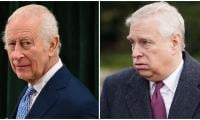Fall of political morality
A larger question today is not who will be elected to the 51 seats of the Senate or which party would get a majority in the Upper House of the Parliament on March 2, but how some of them would become senators? Will they get into the House on merit or through corrupt and immoral practices which in the past many years have gripped our system?
The journey for a "democratic Pakistan" has never been easy since its independence 73 years back. Unfortunately, democracy became the first casualty in the country which was formed after a long democratic struggle led by the founder, Quaid-e-Azam Mohammad Ali Jinnah, who was a firm believer of high democratic values.
Immoral political practices have gripped Pakistan because we never allowed moral and constitutional practices to grow. Popular leaders were either hanged, killed or forced to go into exile. The Constitution was either abrogated, suspended or put in abeyance and the saddest part was the role of the superior judiciary which gave legal backing to illegal practices.
Political parties and leaders, instead of following principled and ideological politics, adopted corrupt practices, something which became quite visible in elections, whether general elections or inside the Parliament. Quaid-e-Azam Mohammad Ali Jinnah laid the foundation of a democratic Pakistan, and what he believed in. In his very first speech before the Constituent Assembly on August 11th, 1947, he clearly stated that Pakistan would be run on democratic values, rule of law, respect for religious minorities and with complete freedom of the Press.
But contrary to Jinnah’s vision, Pakistan was governed by authoritarian rulers, military dictators and feudal and corrupt elite after his sudden death a year later in 1948. All this led to institutional failure and the kind of political emergence were, by and large, a product of a "controlled system," like Basic Democracy, Majlis-e-Shoora or through elections based on "non-party system." Popular leaders were either hanged, killed or exiled, leaving the system in the hands of corrupt political and ruling elite.
The rule of law was replaced by the "law of necessity" and the Press remained under censorship or controlled freedom. Thus, the country lost its political direction within a few years after Jinnah’s sudden death in 1948. Thus, democracy was defaced and high moral values were replaced by immoral practices, where money matters more than merit or political commitments. After the initial clampdown on leftwing politics and activists in the 50s, democratic values were never allowed to grip the political scene.
Infighting and political intrigues aimed at keeping the majority i.e. Eastern Wing of Pakistan out of decision and policymaking created disharmony and a sense of deep deprivation, which resulted in the rise of nationalist movements. The situation aggravated after One Unit was imposed before the first martial law in 1958. The failure of the Muslim League leaders allowed the ‘civil and military’ bureaucracy to grab power and as they say, power tends to corrupt, and absolute power corrupts absolutely. The ruling elite retained the strong feudal system, unlike in India, where they abolished it and went for the Constitutional rule. Thus, we never witnessed the smooth growth of high moral values within political parties.
With the passage of time, Pakistan became a "security state" rather than Jinnah’s welfare state. Institutional failure allowed corrupt practices to flourish. Some decisions of superior courts go into history as "dark eras" as it allowed misrule in the country. In the first few years after independence, the powerful elite clamped down on political activists belonging to leftwing parties and many of them faced sedition charges though a majority of them wanted Jinnah’s Pakistan and challenged post-Jinnah Pakistan.
None other than the late ISI Chief Lt-Gen Hameed Gul once told me in a TV interview that the appointment of Ayub Khan, a serving general as defence minister, was the biggest mistake, who later imposed the first martial law in 1958. "I think Ayub’s appointment as defence minister when he was a serving general was the biggest mistake. Even Gen Ziaul Haq never wanted to hold elections in 90 days (on Nov 16, 1977) after imposing a martial law,” he said.
One person who was most disturbed with all the developments in the first 10 years was Mohtarma Fatima Jinnah, sister of Quaid-e-Azam, who became the strongest voice against Ayub Khan’s martial law. Even she was ousted by the corrupt power elite in what could be described as the first 'rigged elections.’ Today’s Pakistan is neither the one Jinnah wanted nor the one his sister Mohtarma Fatima struggled for. The fall of political morality has also weakened the democratic values and despite regular elections since 2008, the situation is going from bad to worst.
We now have a very ‘controlled democracy and politics' which has made the election exercise quite meaningless where money matters more than the commitment. Thus, the upcoming senate election on March 2 should also be seen in the shadow of a fragile democracy for which both political parties and the ruling elite are responsible. It is not the fall of the system but those who polluted it, so that they would continue to remain in the driving seat.
(The writer is a senior columnist and analyst of Geo, The News and Jang)
Twitter: @MazharAbbasGEO
-
 The Pope Breaks His Silence On Iran Attacks: Breaking
The Pope Breaks His Silence On Iran Attacks: Breaking -
 US On High Alert After Overnight Joint-military Strikes On Iran: FBI
US On High Alert After Overnight Joint-military Strikes On Iran: FBI -
 Prince William 'frustrated' By Delay In Major Move Against Andrew
Prince William 'frustrated' By Delay In Major Move Against Andrew -
 BLACKPINK's Rose Makes K-pop's History With Major Win
BLACKPINK's Rose Makes K-pop's History With Major Win -
 Noel Gallagher Gives Shut-up Call To Critics After Receiving BRIT Award
Noel Gallagher Gives Shut-up Call To Critics After Receiving BRIT Award -
 Pentagon Used Anthropic’s Claude AI In Iran Attack Despite Ban: Report
Pentagon Used Anthropic’s Claude AI In Iran Attack Despite Ban: Report -
 Nvidia Teams Up With Telecom Firms For AI Driven 6G
Nvidia Teams Up With Telecom Firms For AI Driven 6G -
 SpaceX Launches 25 Starlink Satellites On Its Falcon 9 Booster From The West Coast
SpaceX Launches 25 Starlink Satellites On Its Falcon 9 Booster From The West Coast -
 Expert Reveals What Makes Investigations Hard In Search Of Savannah Guthrie Mother Nancy: 'Silent Witness'
Expert Reveals What Makes Investigations Hard In Search Of Savannah Guthrie Mother Nancy: 'Silent Witness' -
 'SNL's Strongly Reacts To BAFTA's Racial Slur With Tourette’s Sketch
'SNL's Strongly Reacts To BAFTA's Racial Slur With Tourette’s Sketch -
 Austin Shooting Leaves Multiple Dead, Dozens Injured
Austin Shooting Leaves Multiple Dead, Dozens Injured -
 Meghan Markle Friends Break Silence As Duchess Plan To Return To UK
Meghan Markle Friends Break Silence As Duchess Plan To Return To UK -
 Dua Lipa Stuns Everyone On And Off Stage At 2026 BRIT Awards
Dua Lipa Stuns Everyone On And Off Stage At 2026 BRIT Awards -
 2026’s Most Visited Websites Revealed: ChatGPT Overtakes Major Platforms
2026’s Most Visited Websites Revealed: ChatGPT Overtakes Major Platforms -
 Worst Cricket Moments That Shocked The Game
Worst Cricket Moments That Shocked The Game -
 Prince Harry, Meghan Markle Reach A Crossroads: ‘You Could Lose Everything’
Prince Harry, Meghan Markle Reach A Crossroads: ‘You Could Lose Everything’



